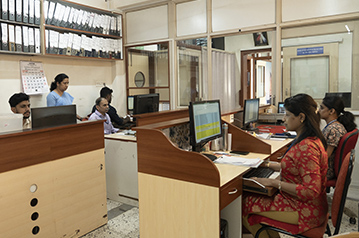Administrative Department
Finance Department
Role of the Finance Department in a Hospital
Budgeting & Financial Planning
Prepares annual budgets in coordination with departments.
Forecasts revenues and expenditures.
Allocates resources efficiently to meet hospital goals.
Billing & Revenue Cycle Management
Handles patient billing (in-patient, out-patient, surgery, diagnostics).
Manages insurance claims (cashless and reimbursement).
Coordinates with TPA (Third Party Administrators) and insurance companies.
Cost Control & Analysis
Monitors departmental expenses.
Performs cost-benefit analyses of services, treatments, and projects.
Identifies areas of cost-saving without compromising patient care.
Compliance & Financial Audits
Ensures compliance with government regulations (e.g., NABH, GST, Income Tax).
Coordinates internal and external audits.
Maintains transparency and accountability in financial records.
Procurement & Vendor Payments
Verifies and processes payments to suppliers and service providers.
Ensures contracts are financially viable and comply with procurement policies.
Payroll Management
Processes salaries, benefits, and tax deductions of staff.
Ensures timely disbursement and regulatory compliance (PF, ESIC, etc.).
Investment & Fund Management
Manages hospital funds and reserves.
Advises on capital investments for infrastructure or equipment upgrades.
Reporting & Decision Support
Prepares financial reports for management, board, and stakeholders.
Supports strategic decisions through financial insights and KPIs.
Cash Flow Management
Manages daily cash flow to ensure operational stability.
Oversees collection, deposits, and fund transfers.



















